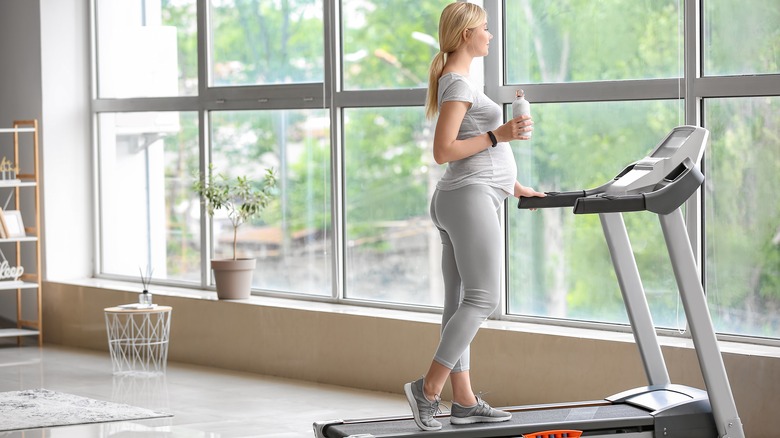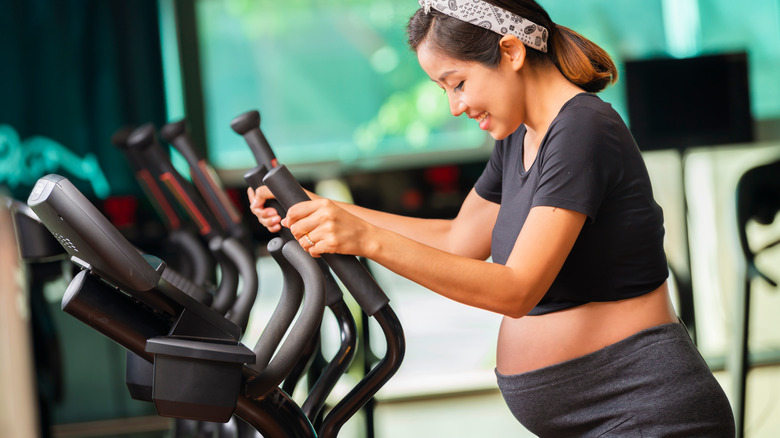Should You Do Cardio Workouts While Pregnant?
During pregnancy, your body undergoes some major (and sometimes surprising) changes. According to Live Science, your breasts swell, your gums might bleed, and your feet may outgrow your shoe collection — and this list doesn't even include the changes in your abdomen. Your body will change from week to week as the baby grows: Your organs will shift, you'll develop a pregnancy bump, and you'll feel your baby kick.
While your body transforms from the inside out, you may wonder if you need to overhaul your health habits too. When you're pregnant, there are certain things you should do to uphold a healthy lifestyle, including following a nutritious diet and staying on top of vaccinations. But exercising can seem more complicated.
The Centers for Disease Control and Prevention (CDC) recommends working out during pregnancy to prevent health problems like depression and diabetes. However, an estimated 20% of pregnant women are told to restrict activity by their doctors (via What to Expect). So when it comes to doing cardio during pregnancy, what advice should mothers-to-be follow for optimal health?
Cardio can be safe and beneficial during pregnancy
If you're pregnant and itching to hit the gym, in most cases, there's no reason to stop yourself. Exercise — including cardio — is safe during pregnancy. Bruce K. Young, MD told Parents that despite pervasive myths claiming that working out can harm a developing baby, "there is no real evidence that exercise is linked to miscarriage," and strenuous exercise won't hurt your bun in the oven.
Expectant mothers can also reap a variety of benefits when they hop on the treadmill or swim laps in the pool. Mayo Clinic lists several reasons to do cardio while pregnant, including more energy, better quality of sleep, improved endurance, weight control, less back pain, and better digestion. One 2019 study also showed that running during pregnancy is linked to better infant neuromotor development. In other words, cardio helps not only mama, but her growing baby too.
Here's how to do cardio the right way during pregnancy
While cardio can be advantageous for most pregnant women, there are some cases where light, low-impact physical activity may be a better choice. According to WebMD, women who have certain health conditions, a history of premature births, a low placenta, a weak cervix, or a high-risk pregnancy should consult with their doctors before exercising.
For pregnant women who get the okay, there are a few safety tips to keep in mind. Drink plenty of water and electrolyte-rich fluids when exercising. It's also important to monitor your body temperature, especially early in pregnancy when a high core temperature may harm the fetus (per Parents). Keep cool, avoid exercising outside on hot days, and take regular breaks. WebMD also recommends avoiding cardio exercises that put pregnant women at risk of falling or suffering impact injuries. Additionally, steer clear of any activity that requires holding your breath or involves being so out of breath that you can't speak.
When in doubt, discuss your cardio routine with your doctor, and make adjustments where needed. You may not be able to do the same workouts you did before pregnancy, but that doesn't mean you have to abandon exercise altogether.


